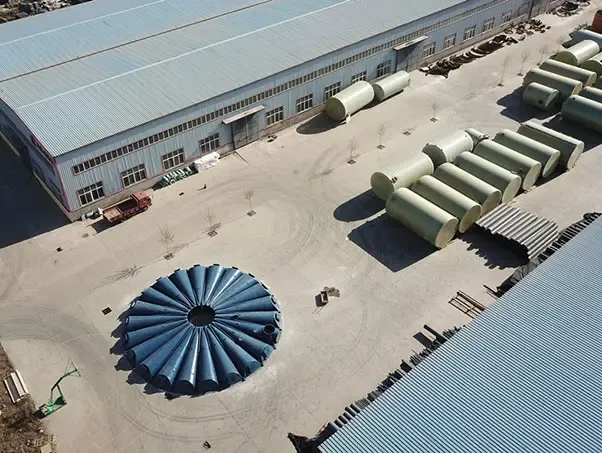
-
 Afrikaans
Afrikaans -
 Albanian
Albanian -
 Amharic
Amharic -
 Arabic
Arabic -
 Armenian
Armenian -
 Azerbaijani
Azerbaijani -
 Basque
Basque -
 Belarusian
Belarusian -
 Bengali
Bengali -
 Bosnian
Bosnian -
 Bulgarian
Bulgarian -
 Catalan
Catalan -
 Cebuano
Cebuano -
 China
China -
 China (Taiwan)
China (Taiwan) -
 Corsican
Corsican -
 Croatian
Croatian -
 Czech
Czech -
 Danish
Danish -
 Dutch
Dutch -
 English
English -
 Esperanto
Esperanto -
 Estonian
Estonian -
 Finnish
Finnish -
 French
French -
 Frisian
Frisian -
 Galician
Galician -
 Georgian
Georgian -
 German
German -
 Greek
Greek -
 Gujarati
Gujarati -
 Haitian Creole
Haitian Creole -
 hausa
hausa -
 hawaiian
hawaiian -
 Hebrew
Hebrew -
 Hindi
Hindi -
 Miao
Miao -
 Hungarian
Hungarian -
 Icelandic
Icelandic -
 igbo
igbo -
 Indonesian
Indonesian -
 irish
irish -
 Italian
Italian -
 Japanese
Japanese -
 Javanese
Javanese -
 Kannada
Kannada -
 kazakh
kazakh -
 Khmer
Khmer -
 Rwandese
Rwandese -
 Korean
Korean -
 Kurdish
Kurdish -
 Kyrgyz
Kyrgyz -
 Lao
Lao -
 Latin
Latin -
 Latvian
Latvian -
 Lithuanian
Lithuanian -
 Luxembourgish
Luxembourgish -
 Macedonian
Macedonian -
 Malgashi
Malgashi -
 Malay
Malay -
 Malayalam
Malayalam -
 Maltese
Maltese -
 Maori
Maori -
 Marathi
Marathi -
 Mongolian
Mongolian -
 Myanmar
Myanmar -
 Nepali
Nepali -
 Norwegian
Norwegian -
 Norwegian
Norwegian -
 Occitan
Occitan -
 Pashto
Pashto -
 Persian
Persian -
 Polish
Polish -
 Portuguese
Portuguese -
 Punjabi
Punjabi -
 Romanian
Romanian -
 Russian
Russian -
 Samoan
Samoan -
 Scottish Gaelic
Scottish Gaelic -
 Serbian
Serbian -
 Sesotho
Sesotho -
 Shona
Shona -
 Sindhi
Sindhi -
 Sinhala
Sinhala -
 Slovak
Slovak -
 Slovenian
Slovenian -
 Somali
Somali -
 Spanish
Spanish -
 Sundanese
Sundanese -
 Swahili
Swahili -
 Swedish
Swedish -
 Tagalog
Tagalog -
 Tajik
Tajik -
 Tamil
Tamil -
 Tatar
Tatar -
 Telugu
Telugu -
 Thai
Thai -
 Turkish
Turkish -
 Turkmen
Turkmen -
 Ukrainian
Ukrainian -
 Urdu
Urdu -
 Uighur
Uighur -
 Uzbek
Uzbek -
 Vietnamese
Vietnamese -
 Welsh
Welsh -
 Bantu
Bantu -
 Yiddish
Yiddish -
 Yoruba
Yoruba -
 Zulu
Zulu
fiberglass elbows
Fiberglass Elbows A Comprehensive Overview
Fiberglass elbows are a crucial component in various piping systems, particularly in industries where durability and corrosion resistance are essential. Made from a composite material, fiberglass elbows combine glass fibers with a resin matrix, resulting in a lightweight yet robust product capable of withstanding harsh environmental conditions.
Advantages of Fiberglass Elbows
One of the primary benefits of fiberglass elbows is their exceptional resistance to corrosion. Unlike metal fittings that can rust or degrade when exposed to moisture and various chemicals, fiberglass elbows maintain their integrity over time. This characteristic makes them ideal for applications in chemical processing, wastewater treatment, and marine environments where substances can be aggressive to traditional materials.
Moreover, fiberglass has an excellent strength-to-weight ratio, making these elbows less cumbersome than their metal counterparts. This lightweight nature not only simplifies handling and installation but also reduces the overall load on support structures in plumbing systems, leading to additional cost savings and enhanced structural efficiency.
Thermal Insulation Properties
Fiberglass elbows exhibit superior thermal insulation properties compared to metal. This quality is particularly advantageous in systems transporting hot or cold fluids as it minimizes heat loss or gain, leading to improved energy efficiency. For industries focused on energy conservation, using fiberglass elbows can significantly contribute to lowering operational costs.
fiberglass elbows

Design Flexibility and Customization
Another significant advantage of fiberglass elbows is their design flexibility. Manufacturers can produce these elbows in various sizes, angles, and configurations to meet specific project requirements. Customization can range from the elbow diameter to the radius of curvature, allowing for seamless integration into existing piping systems. This adaptability is especially valuable in environments where space is constrained or in retrofitting projects.
Environmental Impact and Sustainability
As industries increasingly emphasize sustainability, fiberglass elbows present a more environmentally friendly choice. The production of fiberglass materials has a smaller carbon footprint compared to metals, and many fiberglass products are recyclable. Companies are now looking towards eco-friendly piping solutions, and fiberglass elbows align perfectly with such initiatives.
Conclusion
In conclusion, fiberglass elbows are an indispensable component of modern piping systems. Their resistance to corrosion, lightweight nature, thermal insulation properties, design flexibility, and sustainability make them a preferred choice across various industries. As technology continues to evolve, the applications and effectiveness of fiberglass elbows are likely to expand, further solidifying their role as a key element in engineering and infrastructure projects. Whether in chemical plants, water treatment facilities, or HVAC systems, the choice of using fiberglass elbows is a testament to the ongoing pursuit of efficiency, durability, and environmental responsibility.
Latest news
-
Exploring the Benefits of Top Hammer Drifter Rods for Enhanced Drilling PerformanceNewsJun.10,2025
-
High-Precision Fiberglass Winding Machine for GRP/FRP Pipe Production – Reliable & Efficient SolutionsNewsJun.10,2025
-
FRP Pipes & Fittings for Shipbuilding - Corrosion-Resistant & LightweightNewsJun.09,2025
-
Premium FRP Flooring Solutions Durable & Slip-ResistantNewsJun.09,2025
-
Premium Fiberglass Rectangular Tanks Durable & Lightweight SolutionNewsJun.09,2025
-
Tapered Drill String Design Guide Durable Performance & UsesNewsJun.09,2025









